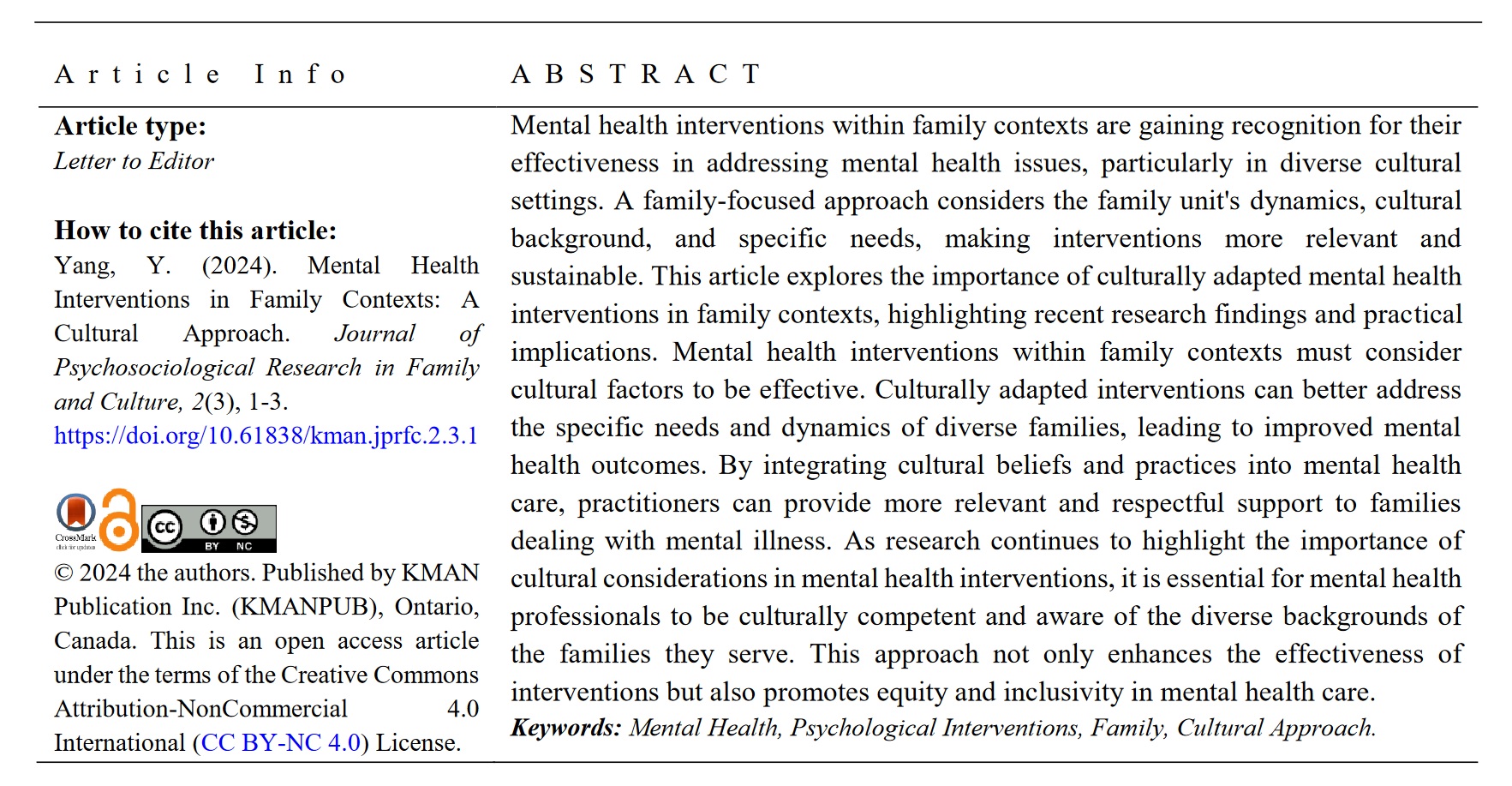Mental Health Interventions in Family Contexts: A Cultural Approach
Keywords:
Mental Health, Psychological Interventions, Family, Cultural ApproachAbstract
Mental health interventions within family contexts are gaining recognition for their effectiveness in addressing mental health issues, particularly in diverse cultural settings. A family-focused approach considers the family unit's dynamics, cultural background, and specific needs, making interventions more relevant and sustainable. This article explores the importance of culturally adapted mental health interventions in family contexts, highlighting recent research findings and practical implications. Mental health interventions within family contexts must consider cultural factors to be effective. Culturally adapted interventions can better address the specific needs and dynamics of diverse families, leading to improved mental health outcomes. By integrating cultural beliefs and practices into mental health care, practitioners can provide more relevant and respectful support to families dealing with mental illness. As research continues to highlight the importance of cultural considerations in mental health interventions, it is essential for mental health professionals to be culturally competent and aware of the diverse backgrounds of the families they serve. This approach not only enhances the effectiveness of interventions but also promotes equity and inclusivity in mental health care.
Downloads

Downloads
Additional Files
Published
Issue
Section
License
Copyright (c) 2024 Elif Toktas (Corresponding Author)

This work is licensed under a Creative Commons Attribution-NonCommercial 4.0 International License.






